We have talked a lot about how to do well academically here at CIG. That includes:
But of course, successful students don’t just do well academically; they usually do well all around.
So, the question is:
What separates truly successful students who have it together and do well in all areas of their lives, from the ones who just do well on the academic side of things?
This question could be answered many ways, but one clear answer is that successful students cultivate habits that set them up for success.
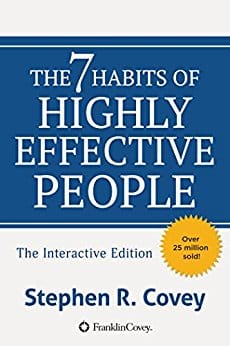 That’s why today we’re going to cover The 8 Habits of Highly Successful Students.
That’s why today we’re going to cover The 8 Habits of Highly Successful Students.
Yes, the title is a riff off of Stephen Covey’s excellent book The 7 Habits of Highly Effective People, which I have read and love.
However, the eight habits you’ll learn about below are unique; they come from my observations of successful students, as well as from practices I’ve tried to incorporate into my own life.
Let’s get started.
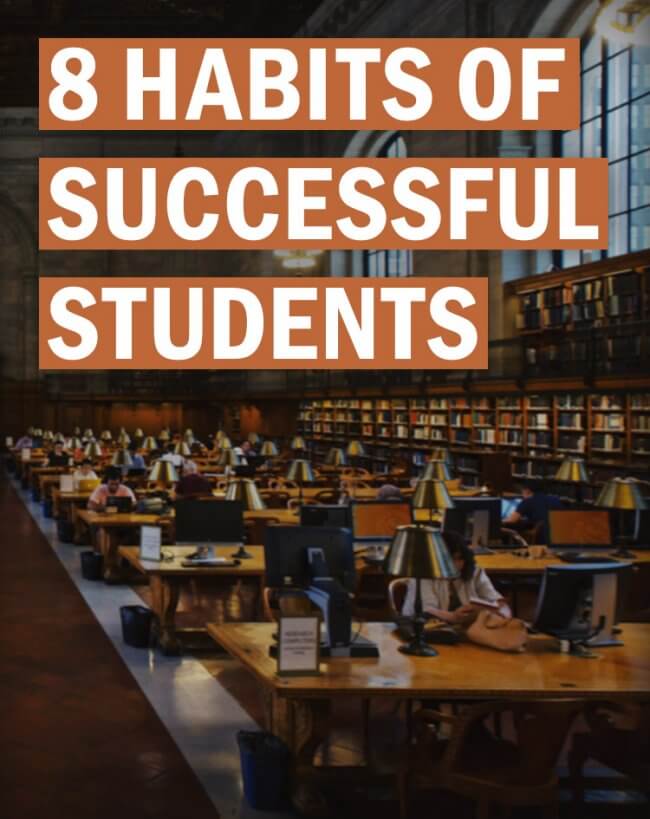
1. Think Ahead
Successful students are forward thinkers.
In The Hobbit, J.R.R. Tolkien wrote,
“It does not do to leave a live dragon out of your calculations, if you live near him.”
As a student you have a lot of live dragons to contend with on all fronts: Career plans, relationships, living situation, errands, and so on – that’s a lot to keep track of!
When I was in college I had a lot of friends who always seemed to be scrambling to get things done at the last second; they were constantly letting life catch them off-guard.
But if you cultivate a forward-thinking mindset, life won’t do that to you – and you’ll also position yourself to take advantage of a lot of opportunities that would pass others by.
Now, you might think that this sort of mindset is something that people are born with – or not. I mean, I certainly did.
When I was a kid, I remember my mom would look up from whatever she was doing and say,
“Hey Thomas, have you brushed your teeth today?”
And I remember thinking, How do you think of stuff like that? I wasn’t talking about brushing my teeth; she wasn’t brushing her teeth – it just popped into her mind!
Eventually, I realized that it was because she cared about my health and she was mindful about it. And through deliberate practice, I’ve been able to become mindful in the same way.
If you want to do the same thing, the first step is build some structures into your everyday routines that will remind you to think in a forward-thinking manner.
For example, you can create a reminder in your calendar or task-management system to sit down once a week and think: What do I have coming up in the near future?
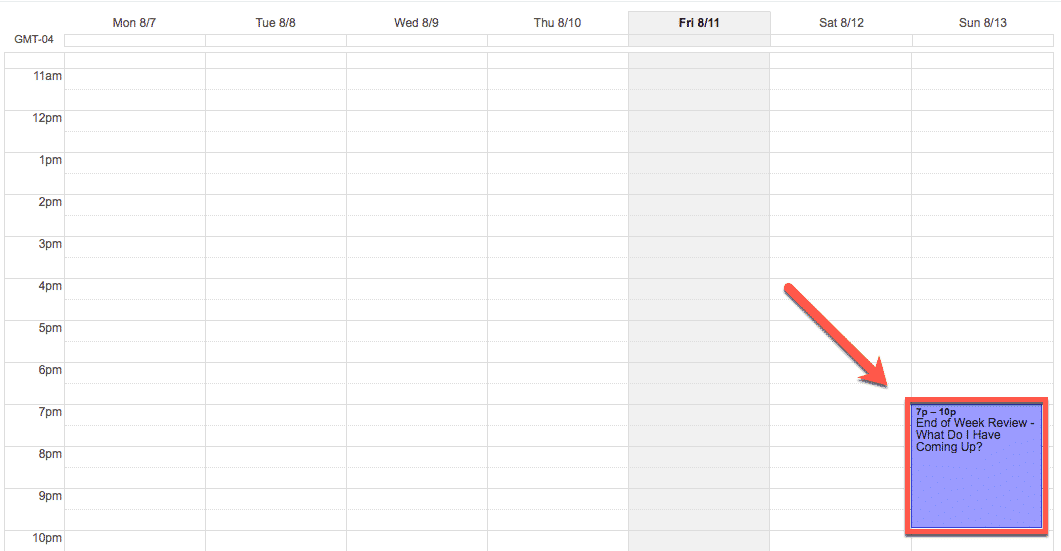
You can also create smaller reminders, like a post-it note near your door to remind you to think about whether or not you’ve forgotten anything in your backpack, before you head out.
And you can do this for all areas of your life:
School and Careers
If you need to sign up for classes, then you should make a reminder for the exact time the class schedules open so you can get in there and get your classes, before everyone else takes the good ones.
Similarly, if you need to get an apartment soon and you live in a college town where everyone signs their leases all at the same time, you should think about doing yours early… Otherwise, come next semester you might have to live in a van down by the river.
And if you don’t happen to know when you should look for internships, you could schedule a time to go into your school’s career center and ask your career counsellor.
Your Relationships
Apply this forward-thinking mindset to your relationships as well: Maybe you have someone’s birthday coming up soon, or you have a friend that you haven’t talked to in a while.
When you apply this forward-thinking mindset to your relationships, you tend to maintain them better.
This is important because as people get older, they start to get busier and tend to have less time for their friends. Only the people who are deliberate about their relationships get to keep them.
The Small Things
Once you’ve gone through the big things, you can drill down to the small things that will make each day a lot smoother.
This could include things like making sure your dress shirts are clean and ironed well in advance if you have a presentation coming up.
2. Move Bravely Towards Adulthood
Successful students don’t let adulthood sneak up on them. Rather, they move deliberately towards it.
By that, I don’t mean becoming a person who hates fun or tells kids to get off their lawn (though, for real, stay off my lawn.)
What I mean is that each and every one of us is eventually going to have to face the challenges that come with adulthood. Challenges like:
- Dealing with your own finances
- Figuring out how to do your taxes on your own
- Learning to iron a shirt or do your own laundry

A lot of people try to put these challenges off as long as they can, which leads to them being ill-equipped to face them when they truly matter.
If you actively seek out these challenges early on, then they’ll be easy to handle once your parents aren’t there to take care of them for you anymore.
3. Solution Finding
Successful students strive to be solution-finders.
When faced with a tough problem that doesn’t have an immediately apparent solution, solution-finders push through and figure out how to solve it.
Sadly, many students aren’t like this – they mentally give up the moment they encounter difficulty. Successful students, on the other hand, persevere and believe they can solve their problems.
The 15-Minute Rule
My friend Matt is a network architect at a company where they’ve turned this mentality into a rule. In fact, they value the rule so much that they’ve given it a name: The 15-Minute Rule (more about the rule here).
When an employee gets stuck on a problem, they have to adopt the mindset of a solution-finder and hammer away at it for 15 more minutes before they can ask for help.
During this time period, they have to document everything they did that didn’t work, so that they can give context to the person helping them.
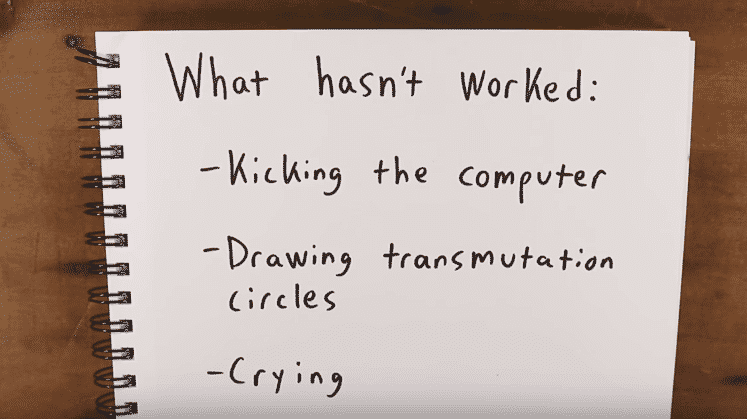
Finally, once the 15 minutes are up, they must ask for help.
This rule helps the employee strike a balance: they learn to be independent and figure things out for themselves, but they don’t waste a ton of time if they’re truly stuck.
Adopting this rule as a student can prove very useful, as you’ll solve a lot of problems independently that you’d originally ask for help on, and when you do ask for help, you can show your teacher that you take the problem seriously and that you’re not just crying out for help the moment things get tough.
4. Building relationships
Successful students work to actively build relationships with professors, teachers, and other faculty members at their school or university.
When you do this, you build a network of people who are from all different age groups, whether they’re in your immediate age group or further along in life.
This habit has a couple of very good benefits:
- You’ll learn about opportunities you’d otherwise miss.
- You’ll have people who can write you recommendations for jobs and scholarships – people a lot more trustworthy than your roommate Jimmy
So how do you start building this network?
First, introduce yourself at the beginning of the semester.
Go up to the teacher after the first class, introduce yourself, shake their hand, and let them know you’re excited about the class.
Second, stay in regular contact.
During the semester, send them articles and things you think they’d be interested in, saying something like,
“Hey, I came across this article and thought of you.”
For example, around 2011 when I was taking my first marketing course in college, I remember that Valve was also about to release Portal 2 – and that they did something really weird with the marketing for it:
They had this setup where people could buy games on Steam, play a ton of hours on those games, and by doing so, contribute to the early release of Portal 2 by a couple of days.
Essentially, this allowed a bunch of older games – that weren’t selling as well – to ride the coattails of a game that already had a ton of hype and anticipation built up around it.
I thought it was brilliant – so I did something that helped build my relationship with my professor: I found an article for it, sent it to my marketing professor and said, “Hey, this is a brilliant marketing strategy.”
The next week, he even talked about the article in class.
5. Learning Outside of Class
Successful students are always trying to learn outside of class.
They read widely from a variety of different sources and branch out from their major. They take a more independent approach to learning.
When you do this, you’ll start dabbling and getting interested in a variety of different subjects. As a result you’ll start to build a diverse web of interconnections in your brain – which allows you to be more creative in your main work.
Plus, once you branch out, you might stumble onto some cool projects.
For example, my best friend Martin was an MIS major in college just like me. However, he also had a language learning blog called Powlyglot.
The blog helped him get recognized in the language-learning community and get hired full-time as a web developer out of college, despite the fact that the company didn’t like to hire recent grads.
6. Ears to the Ground
Successful students constantly keeping their ear to the ground for opportunities.
Here’s the thing: When you’re in school and especially when you’re in college, there are a ton of opportunities around you – but you have to be willing to look for them and to know where to look.
You can find these opportunities by:
- Paying attention to bulletin boards around campus
- Following university departments on social media, including your professors and the departments that you’re a part of.
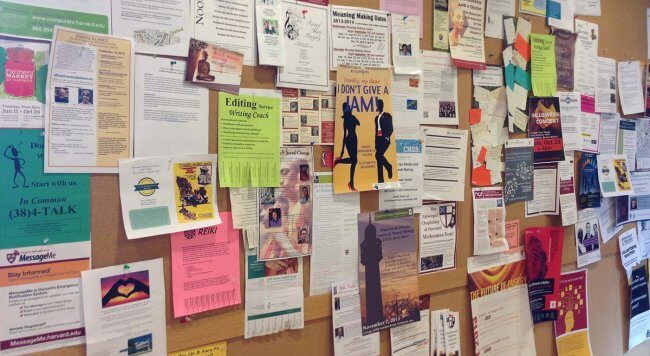
In fact, this habit is directly related to how I got my first internship:
I was following my school’s career centre on Twitter and they tweeted about a big company in my area that was putting on this freshmen leadership seminar. When I saw the tweet, I signed up and got accepted to the seminar. At that event, I met a mentor who was instrumental in getting me hired for that internship.
7. Stay Physically and Mentally Fit
Successful students put a lot of effort into keeping themselves both physically and mentally fit.
Amongst ambitious students, oftentimes there’s a general mindset that you should be spending all of your time studying or pursuing opportunities. When you do this, though, you often let your nutrition, exercise and sleep fall by the wayside. And what’s worse, you can work yourself to the point where you mentally burn out, become depressed or have a lot of anxiety.
In contrast, Stephen Covey quotes Abraham Lincoln in his 7 Habits book as saying:
“Give me six hours to chop down a tree and I will spend the first four sharpening the ax.”
In other words, it’s not just the time you put in that counts – it’s also the focus you’re able to muster during that time, which depends on your physical and mental health.
Truly successful students know this, and so they make time for taking care of their health; they make time for exercise, for making good, healthy meals and for getting enough sleep every single night.
It’s also important to note that successful students ask for help when they need it. If they’re dealing with depression or anxiety, they make it a point to go to a professional if they can’t deal with the issues themselves.
8. Trying Before You’re Ready
Finally, successful students try things before they think they’re ready.
In The Happiness Equation, author Neil Pasricha talks about how most people approach learning new skills and overcoming challenges in a linear way: They feel like they have to be able to do it first, before wanting to do it and finally, actually doing it.
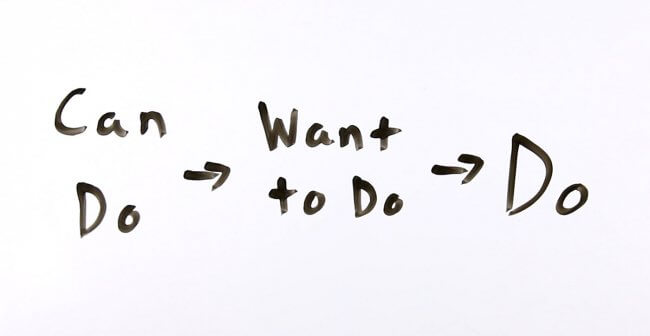
But when you think this way, you never actually get to do the thing, because you never gained the skills to do it in the first place! Instead, Neil encourages us to take that linear model, make it circular and to just start doing the thing.
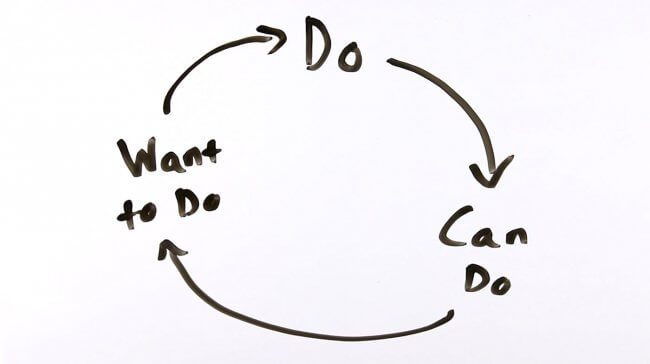
Once you get started, you’ll figure out how you can actually do it, which leads to wanting to do it, and loops back to doing the thing. In this way, the whole process reinforces itself.
Plus, you’re often much more qualified than you think you are.
The truth is, a lot of students – and people in general – deal with impostor syndrome. They think: Who am I to do this? I don’t have a certification or a qualification.
But in many cases, you don’t need it.
For example, as a freshman in college, I really wanted to join a club called the Business Council. The people in it were basically the leaders of the business school at the university – but they had a rule: the council only accepted people who were sophomores and above; very rarely would they make an exception for freshmen.
Instead of waiting till I was a sophomore, though, I applied right off the bat.I thought, what’s the worst that could happen? If they rejected me, I could try again the next semester.
So I put my best foot forward… And I got accepted.
And what’s more, during my first semester as a member, I also got elected to the leadership board!
So if something seems exciting but it also seems a little scary, give it a try anyway, because that’s what successful students do. Unless it’s fighting a tiger. Successful students know fighting tigers is really dumb, for real. (except if it’s fighting a tiger, then maybe you’d want to re-think your life choices).
What are some habits you have that you think should be on this list?

